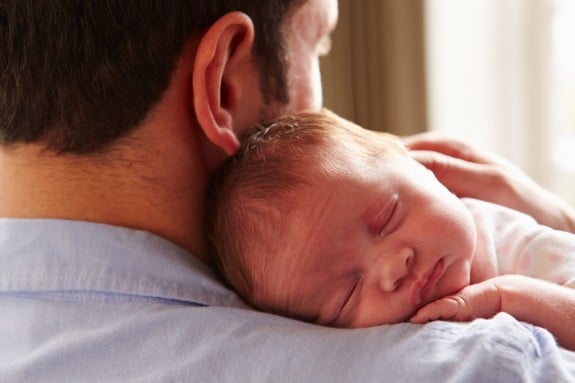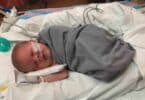Several studies have suggested that mothers’ brains change after childbirth, but not many have looked at the neurological changes that happen for new fathers. A new study has done just that, proving that hands-on dads change and adapt to parenthood, too.
Published in the journal Social Neuroscience, the study is said to be the first to look at the physiological changes that fathers’ brains go through in the months after the birth of a child. This was done by researchers at Yale University who used an MRI scanner to observe the changes of 16 university-educated fathers who had recently welcomed a newborn into the world. Scans were conducted between two and four weeks after the birth of their child, and then again two to three months later.
What researchers found was that, by the time of that second scan, fathers had an expansion of grey matter in areas of the brain known as the striatum, amygdala, and hypothalamus—all considered important areas of the brain when it comes to emotional bonding and responding to a baby’s needs. Fathers were also found to have growth in the lateral prefrontal cortex, and area of the brain that is associated with complicated decision-making.
However, there was one interesting detail about how the dads’ brains had shifted; parts of the grey matter in their brains actually shrunk. This led researchers to believe that the mental resources of fathers actually shift to concentrate on areas directly related to looking after the infant.
“These early father-infant interactions and emotional bonding become the basis of the father-infant attachment, which has a long-lasting impact on the cognitive functions and social attachment for offspring,” the researchers told Daily Mail. “The findings may thus lead to the identification of specific brain regions of potential importance for early father-infant attachment.”
However, psychology professor Ruth Feldman from Barllan University in Tel Aviv, who was involved with the study, says that more research is still needed to help them understand how the brains of fathers change after the birth of a child . . . and to help them establish just how this relates to the father-infant bond later in life.
“It was already known that women’s brains develop the greatest number of new connections after childbirth,” Feldman told The Sunday Times. “We have now shown that fathers’ brains are sensitive to the experience of child-caring in those that are actively involved, but we don’t know yet what happens longer term.”
Related Articles:







